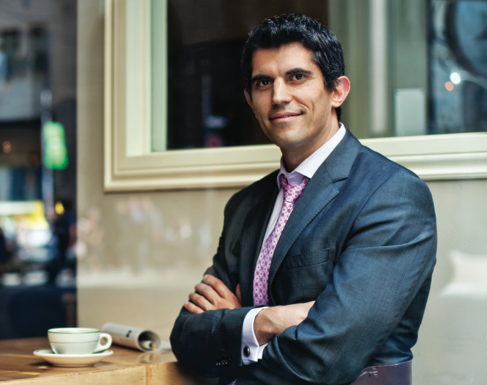After car accidents or botched medical procedures, most people know that, in addition to lodging a complaint with police, they can file a lawsuit to ease their suffering. Indeed, the courts are full of injured people suing reckless drivers and negligent doctors.
But when it comes to sexual assault, most victims have no idea that they can sue their abusers, says Gillian Hnatiw, a partner at Lerners LLP, who specializes in sexual assault litigation. As proof, she points to how the media covered the recent allegations that former CBC radio host Jian Ghomeshi has a long history of sexual violence. The discussion, she says, centred on “whether the victims would go to the police,” as if they had no other legal tool at their disposal.

Gillian Hnatiw, partner, Lerners LLP
And yet, according to Hnatiw, when sexual assault victims do sue their attackers, they invariably prefer the civil system to its criminal counterpart.
There is one obvious explanation for this preference: in civil trials, plaintiffs only have to prove that the assault is more than 50 percent likely to have occurred. A prosecutor, on the other hand, must establish guilt beyond a reasonable doubt to secure a conviction.
And in cases of sexual assault, it is particularly difficult to meet that high burden of proof, says Andrew Faith, who served as Crown prosecutor for four years before launching his own civil litigation firm in 2010. In his experience, sex criminals are difficult to prosecute for two central reasons. One is that most victims go to the police well after the offence took place, so there is rarely any forensic evidence. Second, there are usually no witnesses. Most assaults, he explains, occur “without anyone around, so it often comes down to ‘he-said, she-said.’”
Though he defends the philosophical underpinnings of the criminal justice system, Faith admits that, when he worked on sexual assault cases as a Crown, they could be disheartening. “You want a fair a result, and if the evidence isn’t there, then so be it,” he says. “But, it’s frustrating in the sense that you know the person was being honest, and telling the truth, and remembering horrible things and was becoming emotional on the stand and that, at the end of the day, that still might not be enough.” In that context, he concludes, if a victim is looking for “vindication from a judge, there’s no doubt that the lower burden of proof [in the civil system] is better.”

Andrew Faith, partner, Polley Faith LLP
Some victims also find civil trials therapeutic, says Hnatiw. Unlike in the criminal system, the defendant in a civil suit does not have the right to remain silent. “When I sue abusers, I get to sit in a room with them for seven hours and ask them questions,” she says. “It’s hard to overstate the value of that to a victim: they are forcing their abusers to actually answer the allegations.”
Another advantage of the civil courts is that victims can pull the plug on the lawsuit if the stress becomes too much to bear. In the criminal system, however, once the Crown moves forward with the charges, “the victim does not have the power to say ‘Stop,’” says Faith. “You have to be willing, if you make a complaint, to go through right to the end because you’ve essentially started a train without breaks.”
Still, the civil system has a big downside: it costs a fortune to sue someone. Indeed, Hnatiw says the cost of going to trial often exceeds $100,000. (“I couldn’t afford myself,” she admits.) So victims rarely go forward with a lawsuit unless the accused is either wealthy or connected to an institution that is, in some way, liable for the assault. “I’ve had situations where I have to say, ‘What’s happened to you is terrible, but I don’t want to put you through this process to have you come out the other end with nothing.’”
Also, in both civil suits and criminal trials, victims still have to recount, in painstaking detail, their story of abuse.
But Hnatiw’s point is not that the civil system can solve every problem. Rather, she wants victims — including those who have accused Ghomeshi in the press — to know they have more than “just a choice between going to police and not going to the police. There is another option.”
While there is a two-year statute of limitations for sexual assault claims, Hnatiw says “the passage of time should not deter [a victim] from consulting a lawyer as there is almost always a way around the limitation issues.”
Photography: Jian Ghomeshi/Brenda Lee; Andrew Faith/Margaret Mulligan


